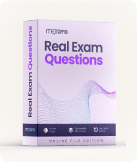BACB BCABA - Board Certified Assistant Behavior Analyst Exam
Page: 2 / 55
Total 272 questions
Question #6 (Topic: Volume A)
Billy, a 20-year-old male, has the capacity to give consent for treatment. The behavior analyst has developed a program and explained it to Billy. Procedures,
benefits, rights, and other information also were shown to him. The one element still needed for informed consent is approval from
benefits, rights, and other information also were shown to him. The one element still needed for informed consent is approval from
A. Billy.
B. clinical review committee.
C. human rights committee.
D. Billy's parents.
Answer: A
Question #7 (Topic: Volume A)
From an ethical standpoint, target behaviors and program goals should be selected
A. by service providers and staff members who are knowledgeable of the consumer's needs.
B. by the consumer or their representative in consultation with an interdisciplinary team.
C. so that they ultimately facilitate transition to independent living.
D. that most closely adhere to the standards of the community.
Answer: B
Question #8 (Topic: Volume A)
Fred does not follow some of the directives imposed by the direct care staff. A behavior analyst has been asked to put a program in place that will get Fred to
comply with all directives. The behavior analyst should FIRST
comply with all directives. The behavior analyst should FIRST
A. differentiate between compliance rates across different directives.
B. request that staff provide a ratio of compliant behaviors to noncompliant ones.
C. determine a list of potential reinforcers for the behavior program.
D. consider the ethical implications of training Fred to comply with all directives.
Answer: D
Question #9 (Topic: Volume A)
A behavior analyst specializing in developmental disabilities is informed by a cousin at a family gathering that their 2-year-old child has just received a diagnosis of
autism and severe intellectual disability. The cousin asks the behavior analyst for advice. Which statement BEST conforms to the ethical and professional
standards for behavior analysts?
autism and severe intellectual disability. The cousin asks the behavior analyst for advice. Which statement BEST conforms to the ethical and professional
standards for behavior analysts?
A. It would be unprofessional and unethical for the behavior analyst to advise a relative.
B. The behavior analyst can consult with their cousin, but only on an informal basis once the cousin hires their own behavior analyst.
C. Early intensive behavioral intervention may suit the child and family. The behavior analyst should suggest some people for the cousin to contact.
D. Tell the cousin that the child will benefit from behavioral intervention with the impact of the intervention depending on the specific treatment that is implemented. C
Answer: Explanation
Question #10 (Topic: Volume A)
From an ethical standpoint, which source provides the MOST appropriate information for justifying implementation of a program to change a person's behavior?
A. daily reports from the direct care staff who work with the person routinely
B. graphed data from the program staff who observe the person regularly
C. written recommendations from the medical staff who treat the person on a regular basis
D. written requests from the administrative staff who are ultimately responsible for the person's care
Answer: B
